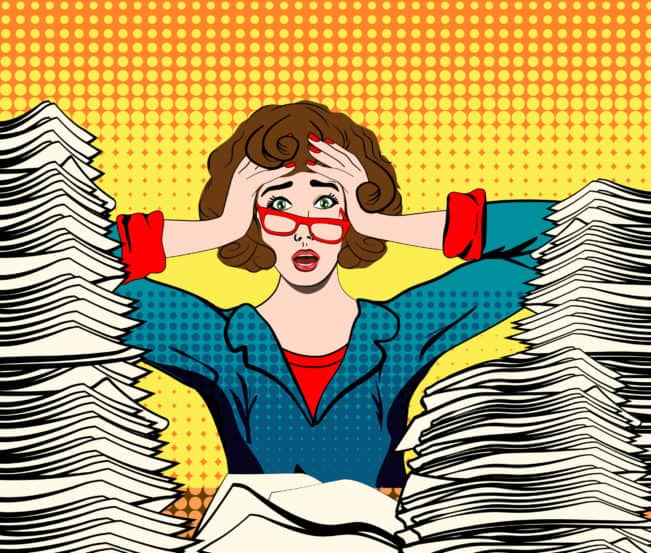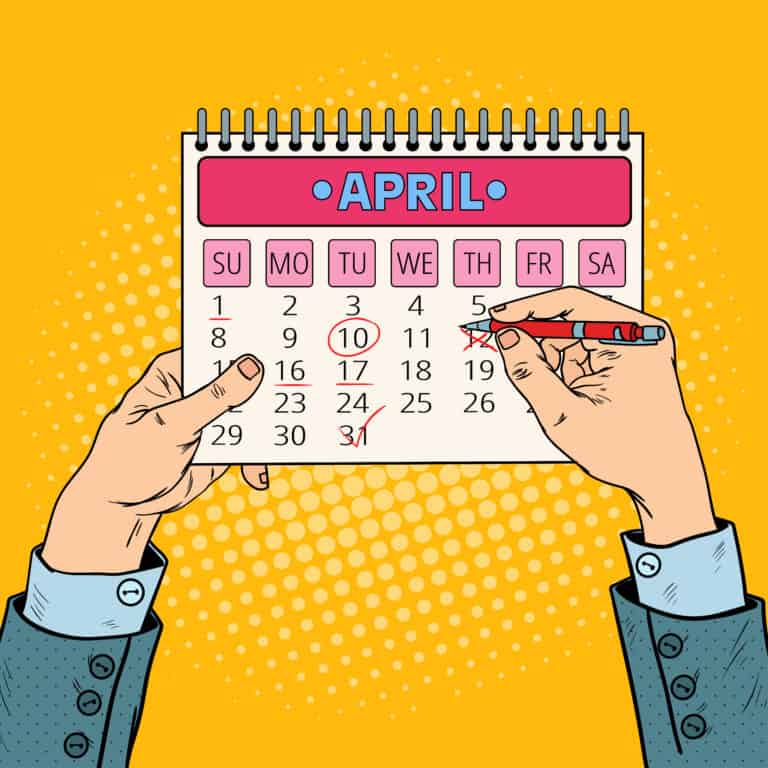Do you have trouble focusing on tasks? Do you feel like you’re constantly moving from one thing to another? Are you easily distracted? If so, you may have Attention Deficit Hyperactivity Disorder (ADHD), sometimes referred to as ADD or, in some countries, Hyperkinesis.
ADHD is a medical condition that can affect both children and adults.
ADHD is characterised by problems with focus, concentration, and self-control. People with ADHD may have difficulty completing tasks, be easily distracted, and act impulsively. ADHD symptoms can lead to academic problems, social difficulties, and behavioural issues.
If you think you might have ADHD, you should see a doctor or mental health professional for an evaluation. No single test is used to diagnose ADHD; instead, doctors will look at your symptoms and how they’ve impacted your life. Once diagnosed, there are treatments available that can help manage the symptoms of ADHD. These treatments may include medication, therapy, or a combination of both.
ADHD is a condition that affects millions of adults across the world and can make everyday tasks such as cooking dinner or completing a work project very challenging. It’s estimated that more than 1.5 million adults in the UK have ADHD, and adults can wait up to seven years for an ADHD diagnosis.
In this article, we will discuss how to know if you have ADHD and some tips for living with adult ADHD.
Some of the symptoms of ADHD include inattentiveness, hyperactivity, impulsiveness, anxiety and sleep problems. ADHD sufferers are prone to addiction, too, with many suffering from substance abuse, overeating and gambling.
ADHD can make it difficult to focus, stay organised, and control impulsive behaviour. However, ADHD does not have to be a negative thing. Many successful people with ADHD have gone on to lead happy and fulfilling lives.
Historically, there has been a lot of ignorance about ADHD and the symptoms of ADHD in adults, as well as girls with ADHD.
ADHD isn’t just for boys; it isn’t a behavioural issue.
The number of adults diagnosed with ADHD is increasing, and there are long NHS waiting lists in the United Kingdom, and many men and women go undiagnosed or misdiagnosed. In the US, ADHD diagnoses are growing four times faster than children’s diagnosis rate.
While healthcare costs in the US make treatment unattainable for those unable to afford it, ADHD sufferers in the UK haven’t had it easy, despite having access to free healthcare.
In 1990, just 40 children in the United Kingdom were given medicine for ADHD. This means that many adults have never been diagnosed or treated adequately. ADHD wasn’t even recognised as a valid condition in the UK until 2000, and even then, it wasn’t officially recognised as an adult condition until 2008!
ADDitude Magazine’s ADHD Statistics report shows that adults with ADHD are three times more likely to develop a major depressive disorder, six times more likely to develop dysthymia, and approximately four times more likely to have any mood disorder than adults without ADHD.
Symptoms of Adult ADHD
Some people with ADHD have fewer symptoms as they age, but some continue to have significant difficulties in their daily lives. Adults with ADHD may experience difficulty concentrating, impulsive behaviour, and restlessness as the most common features. The severity of the signs ranges from minor to severe.
Many adults with ADHD are unaware of the condition, although they may recognise that everyday activities are difficult. Adults with ADHD may have difficulties focusing and prioritising, resulting in missed deadlines and forgotten meetings or social plans. Self-control issues might manifest themselves in various ways, including anger when waiting in lines or driving through traffic, mood swings, and rages.
Adult ADHD symptoms can include:
- Impulsiveness
- Procrastination
- Disorganisation
- Poor time management skills
- Trouble multitasking
- Low tolerance for frustration
- Easily distracted
- Mood swings or irritability
- Restlessness or fidgeting
- Risky behaviour
- Struggling to follow through or complete tasks
Is it possible that everyone has a little bit of ADHD?
At some point in their lifetime, everyone has recognised themselves to have ADHD-like behaviour or exhibited some of the symptoms. If your difficulties are recent or have only recently shown up, it’s unlikely you have ADHD.
Only when symptoms become severe enough to result in significant difficulties in more than one aspect of your life do doctors identify ADHD. These persistent and detrimental symptoms can be linked to early childhood development.
ADHD does not develop in adults.
If you only recently started experiencing ADHD symptoms, another explanation is needed. Stress is a typical reason for ADHD-like behaviour in adults. When we are under a lot of stress, our concentration may be hampered, and we may start to feel restless or fidgety.
If you think you might have ADHD
If you’re an adult who hasn’t been diagnosed with ADHD but believes you might have it, the ideal thing to do is consult a doctor about your concerns. Your GP will ask about your symptoms and how they’ve affected different areas of your life, such as work, education and relationships.
ADHD can play havoc with your life
Adults with ADHD can struggle with everything from work, careers, relationships, money, and social life.
The BBC has recently published a short story, “Living with ADHD: I have the brain of Einstein but the attention span of a two-year-old,” which depicts an individual’s experience with ADHD.
Stuart’s story of ADHD is not unique. Contrary to the myth that adult ADHD is not a serious condition and that if someone tried hard enough, they could overcome the condition on their own, ADHD is a neurological disorder and a very disruptive condition that affects every area of life of the person who suffers as well as their families.
Adult ADHD and work
Because some of the main issues associated with ADHD are inattention, poor time management, and disorganisation, the person’s work life and career will often suffer. Some of the problems that occur among adults with ADHD that affect their careers include:
- Repeatedly being late for work
- Failing to meet deadlines
- Missing meetings
- Not being able to organise tasks
- Spending a lot of time at work but not getting much completed
- Easily getting distracted by other things happening around them
- Difficulty paying attention when important information is being discussed
Employers have a legal duty to make reasonable adjustments for employees with disabilities. Adjustments for a team member with ADHD may include flexible working hours, changes to the physical work environment, and specific training for the ADHD team member and their colleagues.
ADHDers can thrive in certain job roles, such as those that are fast-paced and require quick thinking. ADHD can also be an advantage in careers that value creativity, out-of-the-box thinking, and risk-taking.
If you have ADHD and are struggling in your current job role, it may be worth considering a career change to something better suited to your skill set and personality. Some careers suitable for someone with ADHD include:
- Freelance writer
- Journalist
- Police Officer
- Firefighter
- Paramedic
- 999 Call Handler
- Other emergency service roles
- Entrepreneur
- Recruitment Consultant
- Salesperson
- Chef
- Artist
- Graphic Designer
- Web Developer
- Project Manager
- Event Planner
While many challenges come along with ADHD, many successful people also have ADHD. Finding the right career and workplace to suit your personality, passions, and ADHD symptoms is essential for success, and you’ll probably have to try a few different roles before you find the perfect fit.
Adult ADHD and relationships
ADHD can cause problems in all types of relationships, including with family members, friends, colleagues, and romantic partners. ADHD symptoms can make it difficult to communicate effectively, stay organised, manage time wisely, and control impulsive behaviour. All of these things are important for maintaining healthy relationships.
ADHD and love
The symptoms of ADHD can harm romantic relationships, which is why so many people with ADHD constantly struggle to maintain long-term partnerships. When you’re involved with someone with ADHD, life can be chaotic and intense, putting pressure on relationships.
There may be resentment when one partner feels they are always doing the organising, cleaning, planning and other responsibilities. In turn, the person suffering from ADHD may feel that the other person is constantly nagging them to do things. Having a partner willing to understand and learn about ADHD is vital for making a relationship last.
ADHD can cause problems in relationships with:
- Communication
- Money management
- Sex and intimacy
- Parenting
ADHD can make it difficult to communicate effectively, stay organised, manage time wisely, and control impulsive behaviour. All of these things are important for maintaining healthy relationships.
If you have ADHD and are in a relationship, being open and honest with your partner about your symptoms and how they affect the relationship is vital.
ADHD and family
ADHD often runs in families, so if you have ADHD, there’s a good chance that one or more of your children will also suffer from the condition. This can put a lot of strain on relationships within the family.
There are some things you can do to make life easier for everyone:
- Open communication – Talk about ADHD openly with your partner and kids to help them understand the condition better.
- Set realistic expectations – Don’t expect yourself or your child with ADHD to be perfect. Everyone makes mistakes sometimes.
- Stick to routines – Setting routines and rituals can help minimise chaos in the household.
- Make time for each other – Spend quality time together as a family, without distractions
Adult ADHD and friendships
ADHD can make it difficult to interact with other people and maintain friendships. Making friends as an adult can be hard enough, but ADHD can make it even harder.
Nobody likes to be ignored, so zoning out or not replying to messages can make it seem like you’re not interested in being friends. ADHD can also make it difficult to keep up with conversations, remember important details about people, or be on time for social events.
If you have ADHD and want to maintain friendships, there are some things you can do:
Try to be understanding – If you cancel plans at the last minute or forget to reply to messages, apologise and try to reschedule.
Let your friends know about your ADHD – This can help them understand why you might do certain things that bother them.
Make an effort – Don’t let ADHD stop you from reaching out and making plans with friends. It’s worth the effort to maintain good friendships.
There are some things you can do to make it easier to socialise and meet new people :
Find activities that interest you – It’s easier to make friends when doing something you enjoy. Doing something together gives you a shared interest and topic of conversation.
Join a club or group – Joining a club or group is a great way to meet people with similar interests. It takes the pressure off having to find things to talk about and gives you something in common from the start.
Be yourself – Don’t try to change to fit in. Be yourself, and you’ll attract friends who like you for who you are.
Be patient – Don’t expect instant results when trying to make friends as an adult with ADHD. It takes time and effort to develop friendships. Be patient, and don’t give up.
ADHD and finances
People with ADHD often have difficulty with money management and budgeting. This can cause problems in relationships if one person constantly has to bail the other out or pay for things they’ve agreed not to spend money on.
Disorganisation, procrastination, and impulsiveness all lead to poor financial decisions. Some of the problems this can cause are:
- Forgetting to pay bills (often leading to fines and extra charges)
- Large overdrafts and credit card balances
- Impulsive spending
- Inability to focus on record keeping
Having a partner or someone you trust to help manage your finances can help. ADHD coaching can also assist with developing strategies to overcome ADHD symptoms and better manage money.
If you’re in a relationship, it’s important to be open about your ADHD and how it affects your finances. This can help avoid arguments and misunderstandings about money.
Some things you can do to help manage your finances:
Set up a budget – A budget is a great way to keep track of your spending and ensure you’re not overspending.
Keep track of your spending – Keep receipts and bank statements to see where your money is going. This can help you to spot any problem areas and make changes accordingly.
Create a savings plan – Putting away money each month into savings can help you to prepare for unexpected expenses. It’s also a good idea to have an emergency fund in case you need it.
Talk to someone you trust – Talking to someone about your ADHD and finances can help you devise a plan to manage your money better. This could be a partner, friend, family member, ADHD coach, or financial advisor.
If you have ADHD, managing your finances can be difficult, but there are ways to make it easier. Talk to someone you trust about your ADHD and finances and devise a plan that works for you. Budgeting, tracking spending, and having a savings plan can all help you to manage your money better.
Living with adult ADHD
Once you’ve been diagnosed with ADHD, you can take steps to manage your symptoms and live a more productive life. Here are a few tips:
- Make a plan. Having a plan can help you stay organised and on track.
- Set goals and deadlines. Goals give you something to work towards, and deadlines help keep you on track.
- Find an ADHD coach or therapist. A coach or therapist can help you deal with ADHD effectively.
- Get regular exercise. Exercise has been shown to help improve ADHD symptoms.
- Take breaks throughout the day. When your energy is low, take a break to recharge.
ADHD can cause all areas of your life to suffer, including everyday interactions with others. Your ability to function socially can be difficult, too, while friends, colleagues, and peers will find it difficult to understand the disorganisation and constant lateness. Some people will become irritated or accuse you of being impolite or inconsiderate.
ADHD can make it difficult to keep a job or do well in school, and you may have problems with authority figures. Sadly, there is still a stigma around ADHD, with many people believing that those suffering from adult ADHD are just trying to find excuses for their problems.
Hidden disabilities are exactly that, hidden. But with treatment on the rise and access to support networks made more accessible with the internet and things like Facebook Groups, people are learning more about ADHD, leading to more adults seeking diagnosis and treatment.
If you have ADHD and you’re struggling at work with lateness, explain things to your manager or HR department. They should be able to make adjustments to help you in your role, even if that means giving you a flexible window to start work so that if you run late, you’re not punished and won’t cause an issue.
If you’re overwhelmed by large projects and tasks, try to break them down into smaller chunks that seem more manageable and easier to tackle.
And most importantly, if you’re an adult with ADHD and need some help, talk to people. Tell your partner or a close friend if you can. Use Facebook, Reddit, Meetup, or your local health provider to find support groups.
Speak to other adults with ADHD, and you’ll be amazed just reading about some of the things other ADHD adults struggle with that you had no idea could be affected by ADHD. ADHD affects everyone differently, but there are always people who understand and can relate to what you’re dealing with. You’re never alone.
ADHD is real, and it affects millions of adults worldwide in different ways.
If you think you might have ADHD, talk to your doctor or mental health professional. They can give you a diagnosis and help you find ways to manage your ADHD so that it doesn’t take over your life. With the right support, you can live a happy and fulfilling life with adult ADHD.
And finally, if you found this article helpful, please share it with others who might need it. ADHD awareness is so important; the more we can talk about it openly, the better.
You can learn more about adult ADHD on WebMD. You’ll find information on the symptoms of adult ADHD, how to get an adult ADHD diagnosis and how ADHD treatment works.
The articles below might also be of interest to you:
NPR: A Focus on Adults: Living with Chronic ADHD
Clinical Psychology Associates: Understanding and Coping with Adult ADHD
Attention Deficit Disorder Association: Six Secrets to a Happy ADHD Relationship








